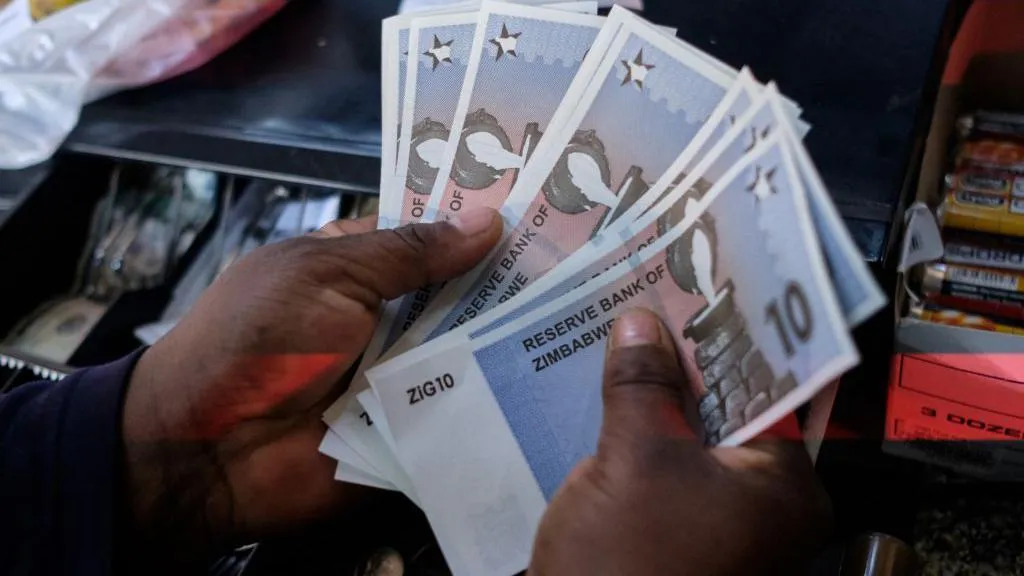Zimbabwe Reduces Value of Gold-Backed Currency by 40%
2 min read

Zimbabwe’s central bank has announced a drastic devaluation of its gold-backed currency, the Zig, reducing its value by over 40% against the US dollar. This move underscores the ongoing struggles of the country’s economy, which has faced significant volatility.
On Friday, the Reserve Bank of Zimbabwe (RBZ) adjusted the exchange rate to 24 Zigs for $1 (approximately £0.75). This decision comes amid increasing demand for the US dollar, which remains a legal tender in Zimbabwe. The devaluation follows warnings from major retailers about potential store closures if the currency’s fixed rate remained unchanged.
The Zig, representing Zimbabwe Gold, was introduced just over six months ago and is the country’s sixth currency in 25 years. The RBZ stated that the decision to devalue the Zig was made by its Monetary Policy Committee in a bid to provide greater flexibility in exchange rates. According to the RBZ, these measures aim to mitigate “emerging exchange rate risks, anchor inflation expectations, and stabilize prices in the near to short term.”
Despite the Zig’s seemingly stable value since its inception, the reality has been starkly different in the black market, where its value has plummeted by more than half. This discrepancy highlights the challenges the government faces in moving the population away from reliance on the US dollar, as there has been no stable alternative currency for citizens.
The skepticism towards the central bank runs deep in Zimbabwean society, rooted in historical events such as the hyperinflation crisis of 2008, when the government printed exorbitant amounts of money, leading to the issuance of 10 trillion Zimbabwe dollar notes while inflation spiraled out of control.
The current economic landscape raises concerns about the effectiveness of the RBZ’s strategies and the long-term viability of the Zig as a trusted currency. As Zimbabweans navigate these turbulent economic waters, the central bank’s ability to restore faith in its monetary policies remains a critical challenge.